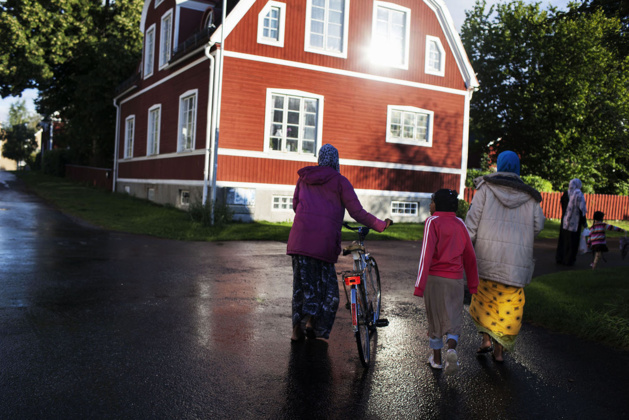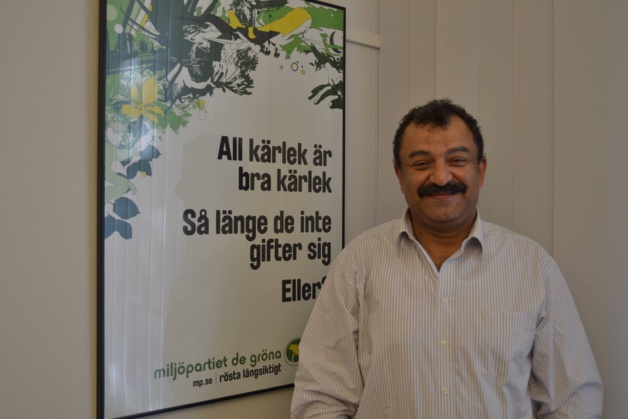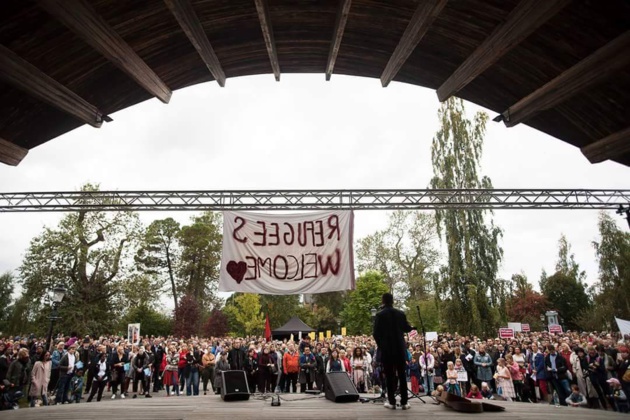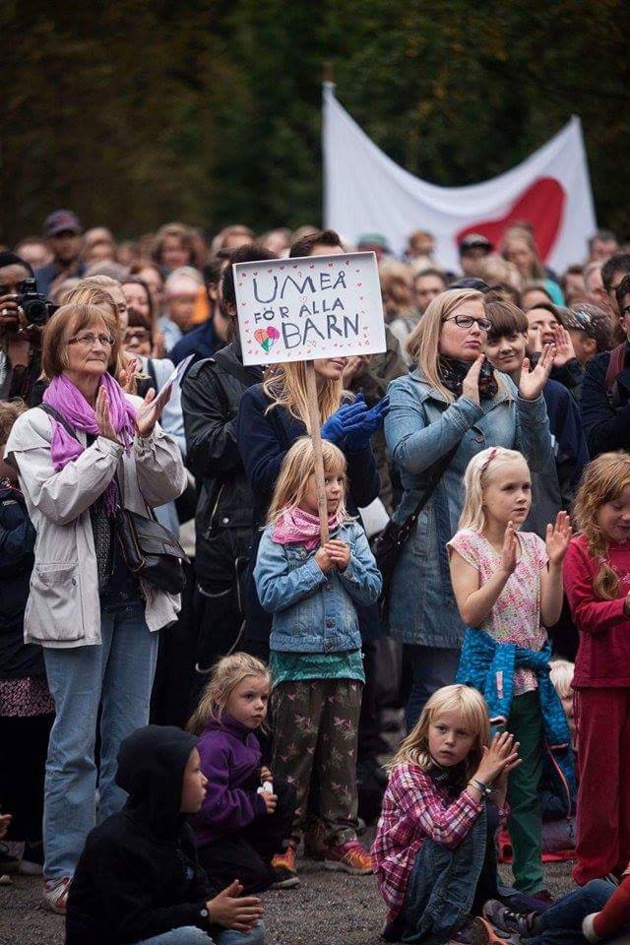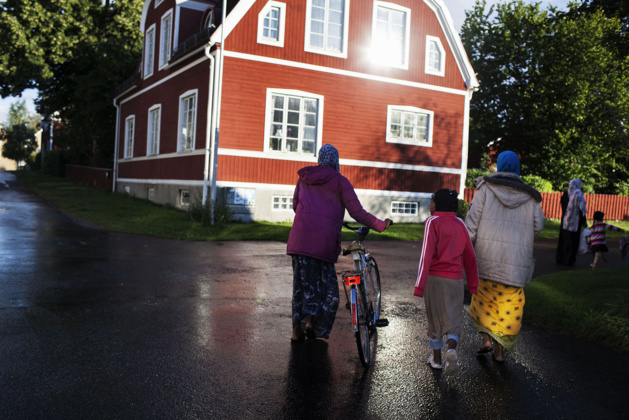
A Somalian family who found refuge in Sweden before the recent refugee crisis – Credits by Loulou d'Aki
In proportion to its population, Sweden has the most welcoming asylum policies. It ranks ninth on the world scale. Facing the recent refugee crisis, the government decided that the country was capable of welcoming no less than 150,000 asylum seekers this year. Only in the past weeks, between 6,000 and 7,000 people have filed their asylum application in Sweden, stated the Migrationsverket (Swedish Migration Agency). This one explains "There are a lot of reasons why refugees come to Sweden. One of which is that many migrants live here, so they choose to come and live here with their close relatives."
On the same level as Germany, several Syrian communities which have been established for a long time - Kurds from Syria in particular - make up the Scandinavian country. In 2013, Sweden became the first European state to allow a permit of residency to everyone fleeing the civil war in Syria.
« Starting over »
But the refugees are attracted by the generosity and the efficiency that characterize the Swedish asylum system. "Sweden has a good international reputation in terms of refugee management, thanks to the high quality of State law”, observes the Migrationsverket. “The quality of the welcoming of asylum seekers is high." After being registered at the Migrationsverket, a room and board system is offered to new arrivals in reception centres across the country while their asylum application is being examined. The process lasts between 6 and 7 months. In the meantime, they are offered a free language and culture class as well as professional training in order to facilitate their integration into Swedish society. While the kids are enrolled as soon as they arrive, adults can start working immediately, a unique case in Europe. Swedish citizenship can be acquired after 4 years of residency in Sweden.
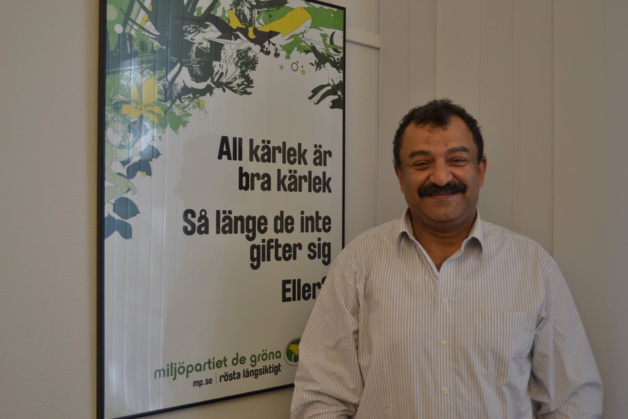
Nasser Mosleh, leader of the group Miljöpartiet de gröna (the Green Party) in the city of Umeå, the main city of the north half of the country, explains why his country is being so welcoming: “In Sweden, and particularly in our political party, we want to give the possibility to start over to those who are not safe in their own country and to make them feel at home."
Integration above all
In Umeå, city lead by a "red-green" coalition, there were not many refugees accepted until now. “The city has been under a contract with the Agency for two months: we will be welcoming 480 refugees each year”, explains Nasser Mosleh. New asylum seekers, after being registered at the local Migrationsverket, benefit from the integration process ‘Viva introduktion’, suggested by the city council. While the youngsters attend a 6-week integration program including Swedish language and an "integration lesson", adults can follow the program "Swedish for Immigrants" that provides a base of the Swedish language as well as the particularities of life in Sweden, in a social and professional context.
“Refugees Welcome”
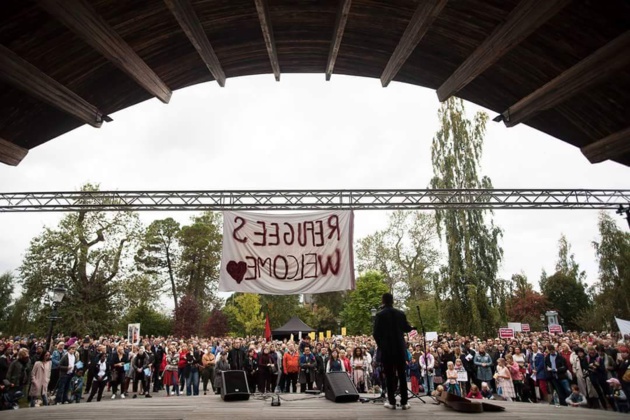
Facing the refugee crisis that is tearing Europe apart, Swedish society is taking a stand. The youth organization linked to ‘Miljöpartiet de gröna’, Grön Ungdom (Green Youth), has organized gatherings across the country in support of refugees. In Umeå, this “Refugees Welcome” protest took place on September 13th, the day before the Prime Minister Stefan Löfven’s trip to Brussels where he talked about the refugee crisis. Grön Ungdom, who demand "an open country with no borders" according to Khalil Karimi, spokesman of the organization in the Västerbotten county where Umeå is situated, wanted to let the head of the government and his European counterparts know that the Swedish people supported a “human Europe”, insisting on the priority on solidarity and “the common responsibility” of European countries. The event, which gathered nearly 2,000 people, “was very successful”, assures Nasser Mosleh. “We did not expect that many people”.
16 other associations were mapped to the project, from Save the Children, to the Swedish Red Cross, going from religious, Islamic and Christian organisations. The director of the University of Umeå, who was also in favour of the project, said that she had been impressed by the cooperation between the young peoples’ organisations, their representatives from every political side (except the far right side) were there, which is a unique case in this country. Since then, the project, initially limited to an occasional gathering, continues to live through a network of volunteers who organize, for example, the welcoming of refugees of some countries, and the redistribution of 120,000 asylum seekers in Europe in two steps. Things don’t necessary get better, according to Khalil Karimi: “Doors stay closed in Greece for example”.
A striking increase of the number of unaccompanied minors
The Swedish asylum system, actually highly developed, has to face new difficulties. This year, the Migrationsverket has registered a striking increase of the number of unaccompanied minors among the new refugees compared to 2014. In order to help the overstretched cities, the government announced in September a budgetary increase of 150 million euros. “The Agency has been reorganizing its team so that it can prioritize the registration of minors”, explains the Migrationsverket. “But it’s important to remind ourselves that there are a lot of public organizations that work with unaccompanied minors like social services and local municipalities”.
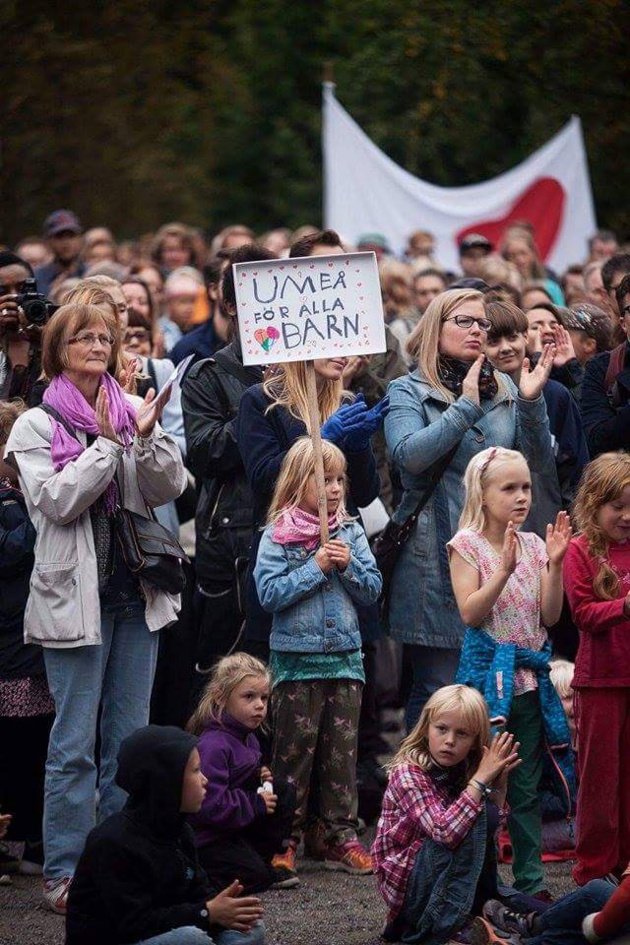
In Umeå, society is concerned by this new aspect of the migratory phenomenon. “Gron Ungdom is one of the best welcoming centres for unaccompanied minors, with specialised schools, with formed and informed foster families”, asserts Khalil Karimi. “The municipality has signed an agreement to welcome unaccompanied minors but the number is weak in terms of the ratio of the population, compared to other cities of the region like Skellefteå”. This weak number is explained by the difficulties of housing access encountered by the population.
“The far-right party builds a false image of the refugees”
The far right party Sverigedemokraterna (Swedish Democrats), denouncing the generosity of the asylum system that would threaten the social and cultural system, was the leader in a recent poll for the first time, gathering 25% of the intended votes. Khalil Karimi highlights that the campaign’s only features are directed towards the refugees.
The Democrats of Sweden have constructed a completely distorted image of refugees so that Swedish people get scared of them”, explains Nasser Mosleh. ”They are making them believe that by welcoming refugees, the Swedish economy is going to collapse”, he says. “Yet, this is not what happened because the government has a special budget for the humanitarian cause, generally used to help developing countries, by financing the construction of schools and hospitals in Africa for example. It is this budget that is used to welcome refugees.”
« A major challenge to overcome »
Despite all of this, the government is under pressure and is not hiding from it. “We are proud of our history but we have to be honest to ourselves: the actual number of refugees seeking for asylum is major challenge to overcome”, admits the Minister of Justice and Immigration, the social-democrat Morgan Johansson. “Finding housing and refuges is particularly urgent, and the Swedish authorities actually have to use emergency places, like sports centres, to house asylum seekers. Sweden will be able to handle the situation but this will require considerable efforts from the government, municipalities and also from civil services.
After the approval of the redistribution system of refugees in the European Union, of which Sweden has been one of the main architects, the Minister thinks that “The European Union has to set up a permanent and compulsory mechanism of redistribution in the long run”, supported by the fact that “right now, a small number of the European Union’s members is in charge of a disproportionate share of the burden”.
Regarding the recent rise of the far right party, Morgan Johansson does not believe it is relevant to associate it to a decline of solidarity among Swedish people: “What we see right now is that a clear majority of Swedish people are supportive of a humane policy on asylum. The actual refugee crisis, on the contrary, is increasing the solidarity regarding Swedish public opinion. It is a relevant change and I’m proud to assist it. I think the real justification for the emergence of new far-right parties is the unemployment and the economic gap between classes. Reduce unemployment and economic injustice and these movements will begin to lose power.”














